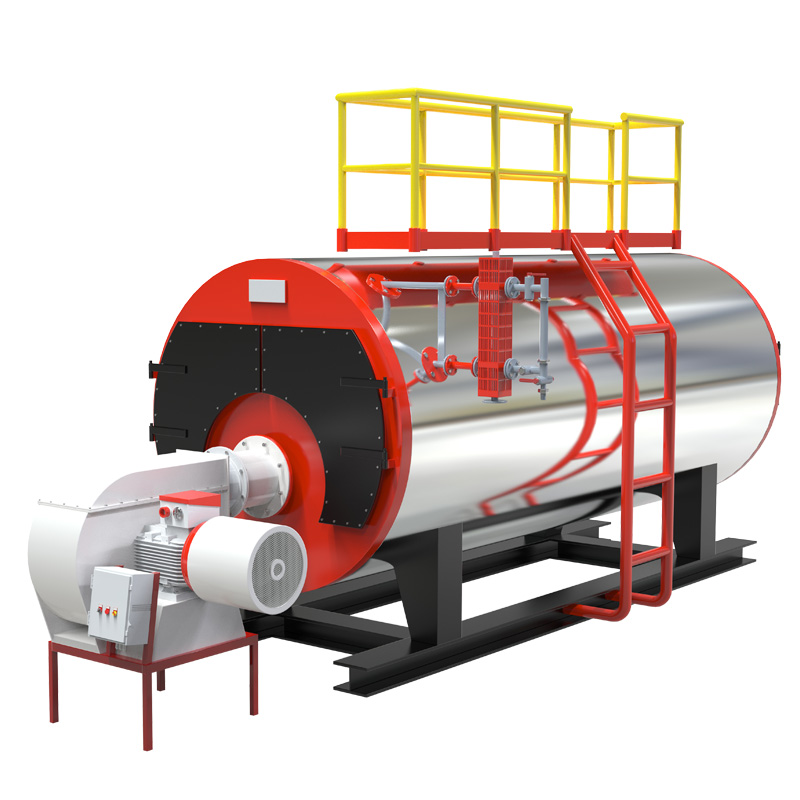
Oct . 12, 2024 09:55 Back to list
oil fired hot water boiler
Oil-Fired Hot Water Boilers An Overview
Oil-fired hot water boilers are an essential component in many residential and commercial heating systems. These boilers utilize oil as the primary fuel source to heat water, providing reliable hot water for various purposes, including space heating, domestic hot water supply, and industrial processes. In this article, we will explore the operation, advantages, and maintenance of oil-fired hot water boilers.
How Oil-Fired Hot Water Boilers Work
At its core, an oil-fired hot water boiler operates on a simple principle. It burns oil in a combustion chamber to generate heat, which is then transferred to water circulating through the boiler system. The key components of an oil-fired hot water boiler include
1. Burner The burner atomizes the fuel oil and mixes it with air to create a combustible mixture. This mixture is ignited to produce heat.
2. Heat Exchanger The heat exchanger is a series of tubes or surfaces where the heat generated from combustion heats the water. This component is designed to maximize heat transfer efficiency while preventing heat loss.
3. Circulating Pump This pump moves the heated water through the system to distribution points, such as radiators or taps, ensuring an even distribution of heat.
4. Thermostat A thermostat controls the temperature of the water within the system. When the water temperature drops below a set point, the thermostat signals the burner to activate, ensuring a steady supply of hot water.
5. Flue System The flue is responsible for venting exhaust gases produced during combustion. A properly functioning flue system is crucial for safety and efficiency, minimizing the risk of carbon monoxide buildup.
Advantages of Oil-Fired Hot Water Boilers
Oil-fired hot water boilers offer several advantages that make them a popular choice for many users.
1. High Efficiency Modern oil-fired boilers are designed to achieve high efficiency, with some models reaching over 90% efficiency. This means that a large percentage of the fuel consumed translates directly into usable heat.
2. Reliability Oil is a consistent and reliable fuel source, providing steady heat generation. Oil-fired boilers often outperform their gas counterparts in extreme cold conditions, making them suitable for colder climates.
oil fired hot water boiler

3. Cost-Effectiveness While the initial installation cost may be higher than some systems, the long-term fuel efficiency can lead to significant savings. Furthermore, purchasing oil in bulk during off-peak seasons can further reduce heating costs.
4. Versatility Oil-fired boilers can be used for various applications, from residential heating to large-scale industrial processes. This versatility makes them an attractive option for diverse settings.
5. Independence from Natural Gas Lines In areas where natural gas is not available, an oil-fired boiler provides a viable alternative, ensuring hot water and heating can be maintained without reliance on natural gas infrastructure.
Maintenance of Oil-Fired Hot Water Boilers
Like any mechanical system, oil-fired hot water boilers require regular maintenance to operate efficiently and safely. Essential maintenance tasks include
1. Annual Inspections Having a qualified technician perform annual inspections ensures that the system is operating efficiently and safely. This includes checking for leaks, inspecting the burner and heat exchanger, and cleaning the flue system.
2. Fuel Supply Checks Monitoring fuel levels is crucial for avoiding unexpected outages. Regularly checking oil levels and scheduling timely deliveries helps maintain a consistent hot water supply.
3. Cleaning and Replacing Filters Regular cleaning or replacing filters in the fuel supply system prevents clogs and ensures proper fuel flow to the burner.
4. Flue Maintenance Ensuring that the flue is clear of obstructions helps prevent backdrafts and improves overall system efficiency.
5. Checking the Thermostat Regularly testing the thermostat ensures it is functioning correctly, providing accurate temperature readings and preventing overheating.
Conclusion
Oil-fired hot water boilers are a reliable and efficient solution for heating water in various applications. With their high efficiency, reliability, and independence from natural gas, they offer significant advantages, especially in colder regions. However, like any heating system, regular maintenance is essential to ensure optimal performance and safety. By understanding how these systems work and committing to proper care, homeowners and businesses can enjoy the benefits of consistent hot water and warmth for years to come.
-
High-Efficiency Commercial Oil Fired Steam Boiler for Industry
NewsJul.30,2025
-
High-Efficiency Biomass Fired Thermal Oil Boiler Solutions
NewsJul.30,2025
-
High Efficiency Gas Fired Thermal Oil Boiler for Industrial Heating
NewsJul.29,2025
-
High-Efficiency Gas Fired Hot Water Boiler for Sale – Reliable & Affordable
NewsJul.29,2025
-
High Efficiency Biomass Fired Hot Water Boiler for Industrial and Commercial Use
NewsJul.29,2025
-
High-Efficiency Biomass Fired Hot Water Boiler for Industrial Use
NewsJul.28,2025
Related PRODUCTS






















